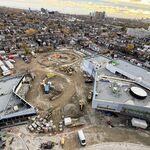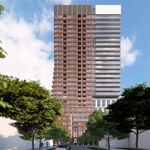King of Kensington
Senior Member
Chicago is particularly bad in terms of US cities. In NYC for instance Blacks live in quite segregated neighorhoods, but they also "bump up" against other neighborhoods with various other ethnicities. In Chicago, you literally have a huge swath of the city's land area that's virtually all Black located on the South Side. It seems to live up to its reputation as the most segregated city in America.
ETA: NYC also doesn't have many virtually 100% Black CTs as Chicago does.
ETA: NYC also doesn't have many virtually 100% Black CTs as Chicago does.
Last edited:




